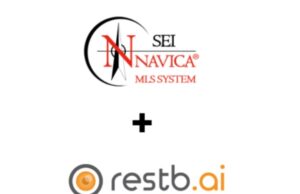Senator Troy Singleton and Advocates Introduce NJ Clean Energy Equity Act
Bill aims to help low-income NJ families hit hardest by financial, health impacts of COVID-19
Trenton, NJ (RealEstateRama) – Justice, solar and community advocates joined Senator Troy Singleton in introducing the NJ Clean Energy Equity Act, S. 2484, to help low-income New Jersey families benefit from solar, storage and energy efficiency. The bill is the first step in implementing the New Jersey Equitable and Resilient Solar + Storage Policy Roadmap, which outlines how New Jersey can help 250,000 low-income families benefit from solar and energy efficiency, and install 400 megawatts of storage by 2030. A summary of the bill is available here.
Building energy resilience in low-income communities will help reduce the harm of future financial crises on our most vulnerable communities. While the moratorium on utility shut-offs is a positive step, investing in solar and storage will provide sustainable savings to low-income households and environmental justice communities, as well as local jobs and economic investment. As New Jersey begins to consider how to build back better, the Clean Energy Equity Act will provide the direction and tools to create a stronger, more resilient, and sustainable post-COVID New Jersey.
“New Jersey’s low-income families and environmental justice communities have the most to gain from clean energy savings, new local jobs and reduced fossil fuel pollution, particularly given the health and financial devastation of COVID-19,” said Pari Kasotia, Mid-Atlantic Director for Vote Solar. “But existing policies fall short of ensuring that all of clean energy’s many benefits reach every New Jerseyan. NJ Clean Energy Equity Act fills a policy void that can make a difference in the everyday lives of New Jersey families month after month.”
The goal of the bill is to use solar, storage and energy efficiency to bring low-income households and environmental justice communities within or below the average energy burden for the state. Energy burden is the percentage of gross household income spent on energy costs, which is disproportionately high for low-income families.
“All New Jerseyans –regardless of their zip code or socio-economic status — must have access to the many economic and environmental benefits that solar energy can provide,” said Senator Troy Singleton, bill sponsor. “Our proposal establishing the Office of Clean Energy Equity will ensure that clean energy reaches every corner of our state, especially those communities that have been traditionally underserved.”
To do this, the bill instructs the Department of Labor to provide grants and additional programs to develop solar and clean energy curriculum, and paid workforce training programs that provide solar training to at least 2,500 individuals from overburdened communities by 2025.The bill will also require that all new construction in low-income and environmental justice communities be solar ready, reducing future costs for families and businesses that choose to go solar.
“Making solar more available to low income, urban communities is an environmental justice issue. Newark residents are on the front lines of two crises, breathing dirtier air that Harvard research shows makes COVID-19 more deadly and what 11,000 leading scientists call the climate emergency,” said Clean Water Action environmental justice organizer Kim Gaddy, a Newark resident with three asthmatic children. “This bill will create good jobs for local residents and reduce our carbon footprint, the heat island effect, and the number of children, elderly, and others most vulnerable gasping for air from an asthma attack, running to the ER, missing school and work, and suffering premature death disproportionately in urban, low income and people of color communities.”
The bill was referred to the Senate Environment and Energy Committee. The first hearing on the bill is not yet scheduled.
Local and national advocates added the following statements:
“New Jersey’s Clean Energy Equity Act sets a new bar for equitable access to solar and storage, nationally. By creating an Office of Clean Energy Equity and establishing clear job training goals, New Jersey leaders are ensuring that all Jerseyans will access the economic, employment and environmental benefits of the state’s clean energy transition,” said Tom Figel, Director of Community Solar at GRID Alternatives.
“For too long, the benefits of a clean energy transition have escaped the reach of low and moderate-income families. We are glad to stand with our partners in New Jersey to unveil much needed legislation that centers equity and access with the aim of serving the clean energy needs of New Jersey’s most underserved families,” said Luis Nasvytis Torres, Senior Legislative Representative for Earthjustice. “Every New Jersey low and moderate-income family should have access to the benefits of a clean energy future and we call on the New Jersey legislature to support robust funding for critical clean energy equity programs like community solar, energy efficiency, and energy storage to unlock the benefits of clean energy for all New Jersey families.”
“The NJ Shines bill sponsored by Senator Singleton is an essential step for continuing to improve environmental health and safety for New Jersey’s low-income communities and all people of our small planet earth,” said Keith Bodden, Immigrant, NAACP NJ SC Chair Armed Forces & Veterans Affairs’ Committee / Acting Chair Environmental Climate Justice Committee.
“Solar energy has created green jobs and helped reduce air pollution, but not everyone gets those benefits. We need to ensure that every community, especially those overburdened by air pollution, is included. This legislation will make sure that there is equity so that everyone can benefit from solar, no matter their income. This is especially important because places with poor air quality are bearing the brunt of the coronavirus pandemic. For too long, solar has only been for people living in the suburbs and those who can afford it. We need to make sure that all people, especially those in urban communities, can benefit,” said Jeff Tittel, Director of the New Jersey Sierra Club. “We can expand solar into communities that are currently underserved by installing solar panels on brownfields and rooftops and expanding community solar so that everyone can benefit. This legislation will mean solar for all.”
“This bill helps to remedy a structural flaw inherent in an economic system whose one-dimensional focus on maximizing short-term profits drives and perpetuates inequity in all its many forms,” said Richard Lawton, Executive Director of the NJ Sustainable Business Council. “As a growing network of businesses who are working to advance a more vibrant, sustainable and equitable economy, we support policies like this that put low-income and E. J. communities at the forefront in helping to both create, and benefit from the growing clean energy economy.”
“Residents of underserved communities are prevented from participating in energy efficiency programs – and benefiting from the cost savings – by obstacles, often beyond their control,” Erin Cosgrove, Policy Counsel, Energy Efficiency Alliance of New Jersey. “To ensure that all citizens are able to benefit from New Jersey’s clean energy future, the state needs to create programs that remove these barriers and create equitable, resilient communities prioritizing energy efficiency and solar.
“As a company focused on bringing community solar to low and moderate income New Jersey residents, we welcome Sen. Singleton’s leadership in ensuring clean energy is available for everyone, not just the select few,” said Gary Skulnik, CEO of Neighborhood Sun.
“Making available solar plus battery storage and energy efficiency technologies to low-income residents will reduce individual energy costs while boosting local economies and creating good jobs,” said Glen Brand, Vice-President of Policy and Advocacy Programs at Solar United Neighbors.
“We are proud to support the NJ Shines Act to reduce the disproportionate health burdens that communities of color and low-income families have borne due to our dirty, fossil fueled economy,” said Ed Potosnak, Executive Director of the New Jersey League of Conservation Voters. “If COVID-19 has brought anything to light, it is that clean air matters, especially for those that don’t have access to it and are seeing more severe symptoms and deaths from this virus. We look forward to working with Vote Solar and our NJ Shines partners to ensure cleaner air, lower the energy burdens of our low-income families, and create even more good, local jobs in New Jersey in the clean energy economy.”
“The COVID-19 pandemic has directly linked the spread of the virus with polluted air. As we recover from the pandemic, we need to fight the virus — and the pollution that spread it. Our cities have suffered a double whammy of polluted air and not enough access to the clean, renewable solar energy. This legislation will ensure that our cities benefit from solar in the same way that our suburbs have,” said Doug O’Malley, Director of Environment New Jersey. “To achieve New Jersey’s clean energy goals and better public health, we need to invest in solar in our cities, and this bill will lead the way forward to that future.”
Media Contacts:












